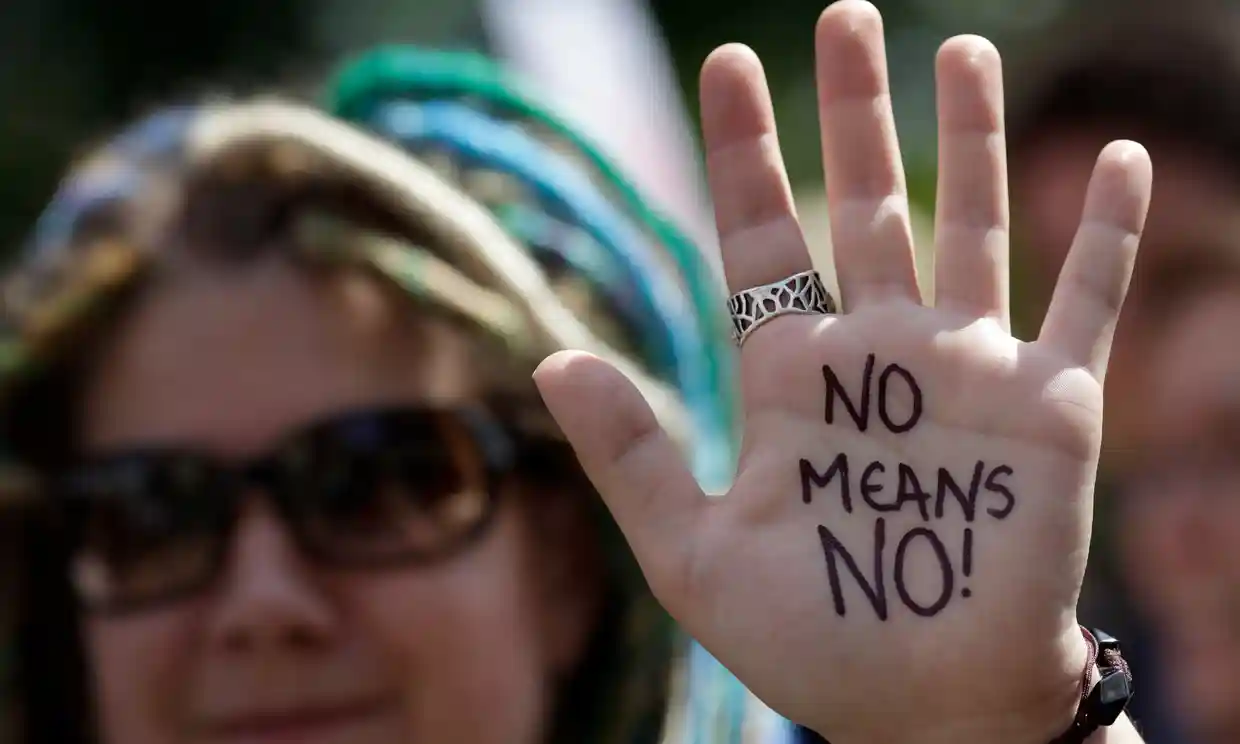CW: This post contains discussions of sexual assault and rape which some readers may find distressing. If you need to seek out assistance or support, contact 1800 RESPECT.
When we think about Sexual Assault Awareness Month (SAAM), we need to reflect on issues surrounding consent, sexual assault and violence, as well as the traumatic impacts it can have. It reminds us of the need to create a safe space where people have the freedom to openly talk about their experiences without stigma or prejudice.

There is a lot of information relating to sexual assault, and there are many myths and misconceptions that exist within this. These myths can make it incredibly difficult for survivors to recover and speak about their experiences. Myths also tend to defend the perpetrators and victim-blame.
The following list compiles some of these myths and includes attempts to debunk them:
- Women who wear revealing clothing are “asking for it”: No one deserves to be assaulted regardless of what they wear. Clothing is a personal choice and should be determined based on what people feel happy, attractive or comfortable in. This myth puts the blame onto the victims instead of the perpetrators, whom of which are solely responsible for their own actions.
- If a person did not object during the assault, they wanted it and therefore it is not considered sexual assault: The victim’s reaction does not determine whether it’s sexual assault. Many victims often “freeze” and are not in a position to fight back, which stems from fear. Absence of a clear yes means a no!
- Only women get sexually assaulted: People of all genders can be assaulted. In fact, in Australia, one in 25 men have been sexually assaulted over the age of 15, along with one in 6 women.
- Men cannot be sexually assaulted: There is evidence to suggest that sexual assault is a gendered crime, whereby women are most frequently the victims and men the perpetrators. However, men are also shown to be victims. While men are commonly assaulted by other men, some men have been assaulted by a woman. The Australian Bureau of Statistics found in 2013 that 1.6% of the total amount of sexual assault offences were committed by women.
- When in a relationship, consent is no longer necessary: Wrong. Consent is always necessary, no matter what. Just because your spouse or partner has said yes to something before, doesn’t mean they will automatically agree to it again. You should always be checking in with your partner regularly. Forcing or pressuring anyone to participate or perform in sexual acts is considered sexual assault.
- Sex workers can’t be sexually assaulted or raped because they sell sex for a living: Sex workers have a right to decide whether they give consent to sexual acts or not. They too can be sexually assaulted and/or raped.
- People assault others because they cannot control themselves: This is never an excuse. Perpetrators must be held accountable for their actions. Consent is mandatory. Additionally, sexual assault may be well-planned out and not impulsive.
- Natural bodily responses indicate the person enjoyed being sexually assaulted: The way the body responds to external stimuli is often out of the victim’s control. Just because this occurs, it does not mean that the other person enjoyed it or derived pleasure from it. Forced sexual activity with no actual consent is still sexual assault. A verbal ‘yes’ is the only way to know for sure if someone is consenting. When in doubt, ask!
- People who come forward a long period after being sexually assaulted are lying: Sexual assault is an extremely traumatic event where some individuals might need an extensive period of time to process it. Sexual assault affects people differently and the validity of sexual assault is not determined by how recently it occurred. Victims may also feel guilt, shame and embarrassment from the event, and consequently blame themselves for it. Only 5% of rape allegations are deemed false.
- People with disabilities are not in danger of being sexually assaulted: Some perpetrators target people with intellectual disabilities because they perceive them to be more weak, powerless and vulnerable. People with disabilities are even less likely to have their allegations taken seriously and face further barriers to reporting sexual assault.
- “No” doesn’t always mean no. People are just playing hard to get: To put it simply, no means no! There is never room for debate.
Acknowledging the trauma and stories of victims only comes after these misconceptions are fully debunked. As this year’s SAAM campaign theme is #IAsk, we need to promote the cruciality of seeking out consent frequently. That includes opening up conversations about sexual wellbeing and respect, creating a space for victims to feel safe and supported when discussing their experiences and minimising stigma.
